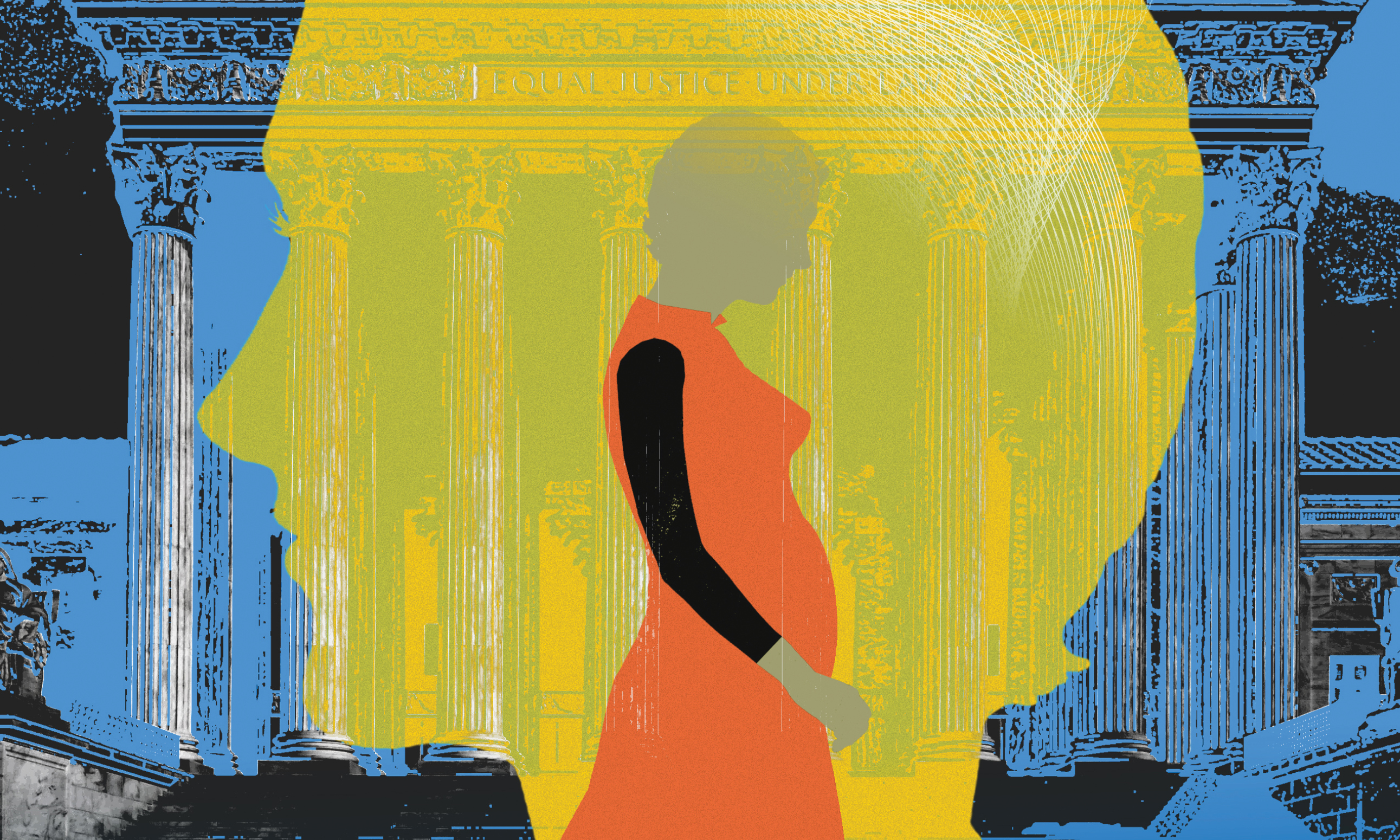Will a Supreme Court Case Spell the Beginning of the End of Abortion?
How the high court responds to 'June Medical Services v. Gee' in March and future abortion disputes may set the stage for what's next for the constitutional right.
January 30, 2020 at 10:00 AM
9 minute read

The U.S. Supreme Court's latest foray into the fight over reproductive rights will test the views of its two newest justices and challenge the high court's respect for its prior abortion decisions. Some observers state that the case, June Medical Services v. Gee, which challenges Louisiana's abortion law, has the potential to be the beginning of the end of the constitutional right to an abortion, or as Justice Stephen Breyer once said in a different context, "death by a thousand cuts."
At first blush, the case, set for argument in early March, appears to be a rerun of the court's 2016 case, Whole Woman's Health v. Hellerstedt, and could be quickly resolved based on that earlier decision. The Whole Woman's Health ruling was a win for abortion rights.
 Pro-Choice protest outside the U.S. Supreme Court in Washington, D.C. in the wake of recent legislation passed in Alabama banning abortions, on Tuesday, may 21, 2019.
Pro-Choice protest outside the U.S. Supreme Court in Washington, D.C. in the wake of recent legislation passed in Alabama banning abortions, on Tuesday, may 21, 2019.Both cases involve a state requirement that physicians performing abortions have hospital admitting procedures within 30 miles of the abortion facility. Only the states are different—Louisiana in the case justices soon will hear and Texas in the case argued a few years ago. If the Louisiana law were enforced, a federal district court found that only one physician at one of the state's three clinics would remain to provide services for an estimated 10,000 women seeking abortions each year.
"Any time the Supreme Court takes up one of these cases there are land mines," said Andrew Beck of the ACLU's Reproductive Freedom Project, a friend-of-the-court who is supporting June Medical Services. "But the court is to apply precedent faithfully and if it does that, it's quite a simple case."
A 'Rule-Of-Law Case.'
The Louisiana case is about hospital admitting requirements, but it is also about precedent, deference to district court fact-findings and the ability of abortion providers to challenge restrictions on behalf of their patients. How the Supreme Court without Justice Anthony Kennedy will react to this case and future abortion disputes could be in focus on March 4, when the Louisiana case goes before the court and its newest justices, Brett Kavanaugh and Neil Gorsuch.
The Louisiana abortion challenge, filed by the Center for Reproductive Rights, will be the first abortion case to be heard by the justices since Gorsuch and Kavanaugh took their seats. In Whole Woman's Health, a 5-3 majority, with Kennedy's key vote, ruled that the Texas admitting privileges requirement had no health benefits for women and thus was an undue burden on their abortion right.
Because the Louisiana requirement is identical to the Texas law, lawyers for June Medical contend that the U.S. Court of Appeals for the Fifth Circuit was wrong to distinguish the laws by rejecting the district court's findings of fact and by refusing to apply the Whole Woman's Health analysis, which requires weighing benefits and burdens of the regulation.
"This is a critically important abortion rights case but it's also a rule-of-law case," said Center for Reproductive Rights senior counsel Travis J. Tu, counsel of record for June Medical, which is also represented by lawyers from O'Melveny & Myers. "We say there are basic rules of the road that courts are to apply that are meant to insulate them from the skepticism that judges are deciding cases based on their own views or ideology about abortion."
The Fifth Circuit, Tu said, failed to apply two of those rules: that legal holdings of higher courts are binding on lower courts and that a trial court's factual findings govern on appeal unless clearly erroneous.
 Demonstrators for and against abortion rights demonstrate outside the U.S. Supreme Court on the day of arguments in the Whole Woman's Health v. Hellerstedt case. March 2, 2016.
Demonstrators for and against abortion rights demonstrate outside the U.S. Supreme Court on the day of arguments in the Whole Woman's Health v. Hellerstedt case. March 2, 2016."Our concern is the Fifth Circuit was basically making a calculated decision that the Supreme Court, based on its changed makeup, wouldn't stand by the precedent issued three years ago," Tu said. "If the Supreme Court lets that decision stand, it invites that kind of gamesmanship—which precedents will they stand by or no longer stand by. That has implications that reach far beyond our case."
Hundreds of female law partners, professors, civil rights advocates and students signed an amicus curiae brief urging the justices not to restrict access to reproductive services. The brief, filed by a team from Paul, Weiss, Rifkind, Wharton & Garrison, shared personal stories about abortion.
"Amici submit this brief, some at immeasurable personal and professional cost, for the countless others who may not have the tools to navigate the legal system to secure all that the Constitution and the court have rightfully promised them," Paul Weiss partner Claudia Hammerman wrote in the brief.
'Clarify, Narrow, or Overrule.'
Louisiana, represented by state Solicitor General Elizabeth Murrill, has countered that the Louisiana law does not burden abortion in the same or worse way as the Texas law in Whole Woman's Health.
"The law does nothing more than extend a longstanding Louisiana requirement that doctors who provide outpatient surgery at surgical centers have admitting privileges at local hospitals," Murrill told the justices in a brief. "Under Act 620, abortion providers are treated like any other doctor."
The state contends that the "burden" on women of any more than a minimal delay for abortion procedures at one of three Louisiana clinics would be the fault of the physicians who have not sought admitting privileges.
"Plaintiffs are not asking this court to apply Hellerstedt, but to transform it into something unrecognizable and unworkable," Murrill told the justices. "Indeed, plaintiffs appear to view Hellerstedt as a vehicle to wipe out virtually all abortion regulation, untethered to any recognizable precedent."
Louisiana's attorneys argue that Whole Woman's Health is "susceptible to radical misinterpretations" and the justices should clarify, narrow or overrule it.
 Claudia Hammerman, with Paul, Weiss, Rifkind, Wharton & Garrison.
Claudia Hammerman, with Paul, Weiss, Rifkind, Wharton & Garrison.The anti-abortion organization Americans United For Life goes a step further, urging the justices in an amicus brief to reexamine the landmark abortion rights decisions Roe v. Wade and Planned Parenthood v. Casey. The brief contends that Roe has remained "radically unsettled" 47 years after the ruling.
"After abandoning the constitutional rationale for the abortion right espoused in Roe, a majority of the Court has not settled on a coherent rationale, and the centralization of the abortion issue in the Court has made the Court and the Justices the focus of ferocious campaigns of personal destruction," wrote Clarke Forsythe, counsel of record.
In a cross-petition filed by Louisiana, the state is challenging the high court's holdings that abortion providers have third-party standing to challenge abortion regulations on behalf of their patients.
"There is no reason to believe Plaintiffs' patients are hindered in challenging the law if they wish to do so; women seeking abortions have litigated their own constitutional challenges many times before," Murrill wrote in Louisiana's brief. On the brief with Murrill are attorneys with the law firms Consovoy McCarthy and Schaerr Jaffe.
But if that argument were accepted by the Supreme Court, it would send "shock waves" around the country, Tu said. Justice Clarence Thomas raised the standing issue in his dissent in Whole Woman's Health, but no other justice joined him.
"There has been over 40 years of precedent and for very good reason," Tu said. "The court recognizes that abortion providers have to be able to vindicate those rights. It's entirely unreasonable to expect a patient who is seeking an abortion in a narrow window of time to simultaneously find the resources and a lawyer to come to court. If the court were to brush aside decades of precedent, the consequence would be to pull the rug out from under many cases challenging abortion restrictions."
 Liz Murrill, Solicitor General for Louisiana.
Liz Murrill, Solicitor General for Louisiana.The high court last February temporarily blocked the Fifth Circuit decision pending a ruling by the justices on June Medical's petition. Four justices would have allowed the decision to take effect: Justices Samuel Alito Jr., Thomas, Gorsuch and Kavanaugh. Kavanaugh wrote separately to say the law should go into effect to test the lower courts' "predictions" on whether abortion physicians in Louisiana actually could obtain admitting privileges.
As with many abortion challenges, the Louisiana case has generated numerous amicus briefs from a cross section of religious, health, business and civil rights groups on the left and right. The American Bar Association, whose lawyers include a team from Crowell & Moring, said the Louisiana case raises important questions about the roles and responsibilities of trial and appellate courts.
"The decision below reflects that the court revisited and revised the district court's factual findings in a manner that resulted in that court distinguishing, rather than following, the precedent set by Whole Woman's Health," the ABA's friend-of-the-court brief said.
Former federal appeals judge Kenneth Starr was on an amicus curiae brief for the conservative Thomas More Society, supporting Louisiana. The brief argued against claims that June Medical could assert standing on behalf of anticipated patients. "Nothing is hindering women seeking abortions from bringing their own challenges to Louisiana's statute," Thomas More Society's brief argued.
This content has been archived. It is available through our partners, LexisNexis® and Bloomberg Law.
To view this content, please continue to their sites.
Not a Lexis Subscriber?
Subscribe Now
Not a Bloomberg Law Subscriber?
Subscribe Now
NOT FOR REPRINT
© 2025 ALM Global, LLC, All Rights Reserved. Request academic re-use from www.copyright.com. All other uses, submit a request to [email protected]. For more information visit Asset & Logo Licensing.
You Might Like
View All
Hours After Trump Takes Office, Democratic AGs Target Birthright Citizenship Order
4 minute read
Supreme Court Will Hear Religious Parents' Bid to Opt Out of LGBTQ-Themed School Books

Supreme Court Upholds Law Requiring TikTok's Divestiture or Shutdown

Full 8th Circuit Hears First Amendment Challenge to School District’s ‘Equity Training’
Law Firms Mentioned
Trending Stories
- 1Paul Hastings, Recruiting From Davis Polk, Continues Finance Practice Build
- 2Chancery: Common Stock Worthless in 'Jacobson v. Akademos' and Transaction Was Entirely Fair
- 3'We Neither Like Nor Dislike the Fifth Circuit'
- 4Local Boutique Expands Significantly, Hiring Litigator Who Won $63M Verdict Against City of Miami Commissioner
- 5Senior Associates' Billing Rates See The Biggest Jump
Who Got The Work
J. Brugh Lower of Gibbons has entered an appearance for industrial equipment supplier Devco Corporation in a pending trademark infringement lawsuit. The suit, accusing the defendant of selling knock-off Graco products, was filed Dec. 18 in New Jersey District Court by Rivkin Radler on behalf of Graco Inc. and Graco Minnesota. The case, assigned to U.S. District Judge Zahid N. Quraishi, is 3:24-cv-11294, Graco Inc. et al v. Devco Corporation.
Who Got The Work
Rebecca Maller-Stein and Kent A. Yalowitz of Arnold & Porter Kaye Scholer have entered their appearances for Hanaco Venture Capital and its executives, Lior Prosor and David Frankel, in a pending securities lawsuit. The action, filed on Dec. 24 in New York Southern District Court by Zell, Aron & Co. on behalf of Goldeneye Advisors, accuses the defendants of negligently and fraudulently managing the plaintiff's $1 million investment. The case, assigned to U.S. District Judge Vernon S. Broderick, is 1:24-cv-09918, Goldeneye Advisors, LLC v. Hanaco Venture Capital, Ltd. et al.
Who Got The Work
Attorneys from A&O Shearman has stepped in as defense counsel for Toronto-Dominion Bank and other defendants in a pending securities class action. The suit, filed Dec. 11 in New York Southern District Court by Bleichmar Fonti & Auld, accuses the defendants of concealing the bank's 'pervasive' deficiencies in regards to its compliance with the Bank Secrecy Act and the quality of its anti-money laundering controls. The case, assigned to U.S. District Judge Arun Subramanian, is 1:24-cv-09445, Gonzalez v. The Toronto-Dominion Bank et al.
Who Got The Work
Crown Castle International, a Pennsylvania company providing shared communications infrastructure, has turned to Luke D. Wolf of Gordon Rees Scully Mansukhani to fend off a pending breach-of-contract lawsuit. The court action, filed Nov. 25 in Michigan Eastern District Court by Hooper Hathaway PC on behalf of The Town Residences LLC, accuses Crown Castle of failing to transfer approximately $30,000 in utility payments from T-Mobile in breach of a roof-top lease and assignment agreement. The case, assigned to U.S. District Judge Susan K. Declercq, is 2:24-cv-13131, The Town Residences LLC v. T-Mobile US, Inc. et al.
Who Got The Work
Wilfred P. Coronato and Daniel M. Schwartz of McCarter & English have stepped in as defense counsel to Electrolux Home Products Inc. in a pending product liability lawsuit. The court action, filed Nov. 26 in New York Eastern District Court by Poulos Lopiccolo PC and Nagel Rice LLP on behalf of David Stern, alleges that the defendant's refrigerators’ drawers and shelving repeatedly break and fall apart within months after purchase. The case, assigned to U.S. District Judge Joan M. Azrack, is 2:24-cv-08204, Stern v. Electrolux Home Products, Inc.
Featured Firms
Law Offices of Gary Martin Hays & Associates, P.C.
(470) 294-1674
Law Offices of Mark E. Salomone
(857) 444-6468
Smith & Hassler
(713) 739-1250










